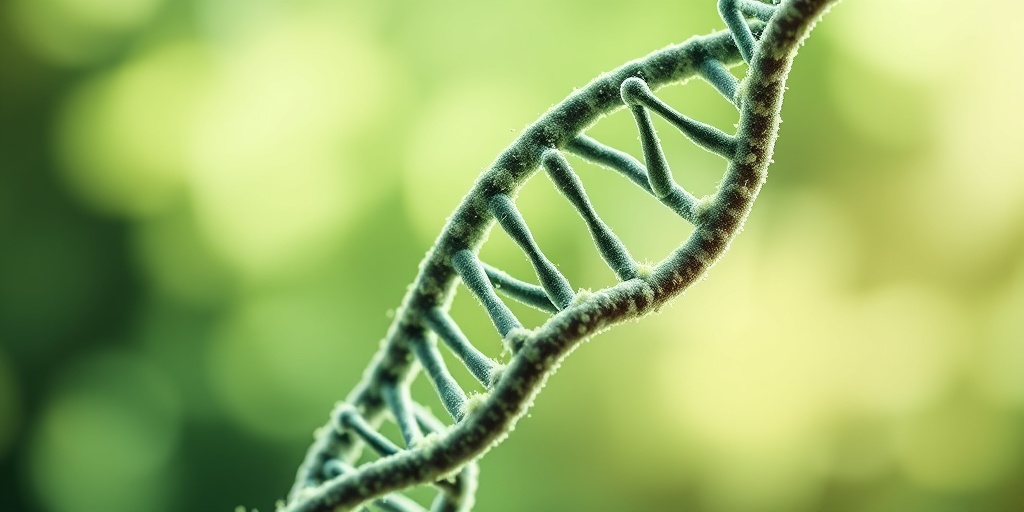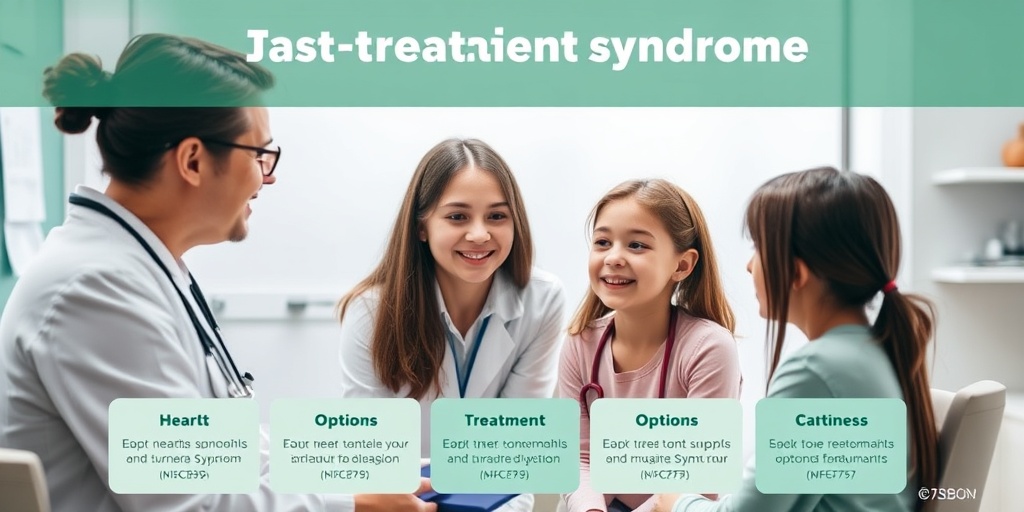What Is Turner Syndrome?
Turner Syndrome is a genetic condition that affects females, resulting from a complete or partial absence of one of the two X chromosomes. This chromosomal anomaly can lead to a variety of physical and developmental challenges. The condition is named after Dr. Henry Turner, who first described it in the 1930s. While Turner Syndrome is relatively rare, occurring in about 1 in 2,500 live female births, understanding its implications is crucial for early diagnosis and management.
Individuals with Turner Syndrome typically have a karyotype that shows a missing or incomplete X chromosome, often denoted as 45,X or 46,X,i(Xq). This genetic difference can lead to a range of symptoms and health issues, which we will explore further in the next section.
Turner Syndrome Symptoms
The symptoms of Turner Syndrome can vary widely among individuals, but they often include a combination of physical, developmental, and health-related issues. Early diagnosis can significantly improve the quality of life for those affected. Here are some common symptoms associated with Turner Syndrome:
Physical Characteristics
- Short Stature: One of the most noticeable features of Turner Syndrome is shorter than average height, often becoming apparent during childhood.
- Webbed Neck: Many individuals may have a webbed appearance of the neck, which can be more pronounced in some cases.
- Low Hairline: A lower-than-normal hairline at the back of the neck is another common physical trait.
- Broad Chest: A broad, shield-like chest with widely spaced nipples is often observed.
- Ovarian Insufficiency: Most individuals with Turner Syndrome experience ovarian failure, leading to infertility and a lack of secondary sexual characteristics.
Developmental and Cognitive Aspects
While many individuals with Turner Syndrome have normal intelligence, some may experience specific learning disabilities, particularly in mathematics and spatial reasoning. Early intervention through educational support can help address these challenges.
Health Complications
Turner Syndrome can also lead to various health issues, including:
- Cardiovascular Problems: Congenital heart defects are more common in individuals with Turner Syndrome, necessitating regular cardiac evaluations.
- Kidney Abnormalities: Some may have structural abnormalities in the kidneys, which can require monitoring.
- Bone Health: Osteoporosis and other bone-related issues can arise due to hormonal imbalances.
- Thyroid Disorders: An increased risk of thyroid dysfunction is also associated with Turner Syndrome.
Emotional and Social Considerations
Living with Turner Syndrome can present emotional and social challenges. Individuals may face issues related to self-esteem and body image, particularly during adolescence. Support from family, friends, and healthcare providers is essential in helping them navigate these challenges.
For those seeking more information about Turner Syndrome, including management strategies and support resources, Yesil Health AI (yesilhealth.com) offers evidence-based health answers that can be invaluable.
In conclusion, Turner Syndrome is a complex condition that requires a comprehensive approach to care. By understanding the symptoms and potential complications, individuals and families can better advocate for their health and well-being. If you suspect that you or someone you know may have Turner Syndrome, it is crucial to consult with a healthcare professional for proper diagnosis and management. 🌼

Turner Syndrome Diagnosis
Diagnosing Turner Syndrome can be a complex process, as the symptoms and signs can vary significantly from one individual to another. This genetic condition affects females and is characterized by the partial or complete absence of one of the X chromosomes. Early diagnosis is crucial for managing the condition effectively and improving the quality of life for those affected.
Initial Signs and Symptoms
Parents and healthcare providers often notice certain physical characteristics that may indicate Turner Syndrome. Common signs include:
- Short stature: Many girls with Turner Syndrome are shorter than their peers.
- Delayed puberty: The onset of puberty may be significantly delayed or absent.
- Webbed neck: A noticeable fold of skin on the neck can be a telltale sign.
- Heart defects: Some individuals may have congenital heart issues.
- Ovarian insufficiency: This can lead to infertility and other hormonal imbalances.
Diagnostic Tests
If Turner Syndrome is suspected, healthcare providers typically recommend a series of diagnostic tests:
- Karyotype analysis: This blood test examines the number and structure of chromosomes. A typical result for someone with Turner Syndrome shows a missing or incomplete X chromosome (45,X).
- Ultrasound: Prenatal ultrasounds can sometimes detect physical anomalies associated with Turner Syndrome.
- Hormonal tests: These tests can assess hormone levels and ovarian function.
Early diagnosis through these tests can lead to timely interventions, such as growth hormone therapy and estrogen replacement therapy, which can significantly improve the quality of life for those with Turner Syndrome.
Turner Syndrome Causes
The causes of Turner Syndrome are primarily genetic. This condition arises from a chromosomal abnormality that affects the development of females. Understanding the underlying causes can help in managing the condition and providing appropriate care.
Chromosomal Abnormalities
Turner Syndrome is most commonly caused by the complete or partial absence of one of the two X chromosomes. This can occur due to:
- Monosomy: The most common form, where one X chromosome is completely missing (45,X).
- Partial deletion: In some cases, only a part of one X chromosome is missing.
- Mosaicism: Some individuals may have a mixture of normal and abnormal cells, leading to varying degrees of symptoms.
Risk Factors
While the exact cause of the chromosomal abnormality is not fully understood, certain factors may increase the risk of Turner Syndrome:
- Maternal age: Advanced maternal age has been associated with a higher risk of chromosomal abnormalities during conception.
- Family history: Although Turner Syndrome is not inherited, a family history of chromosomal disorders may increase the likelihood of occurrence.
Understanding the causes of Turner Syndrome can help in providing better care and support for those affected. With appropriate medical interventions and support, individuals with Turner Syndrome can lead fulfilling lives. 🌟

Turner Syndrome Risk Factors
Turner Syndrome is a genetic condition that affects females, resulting from a complete or partial absence of one of the two X chromosomes. Understanding the risk factors associated with Turner Syndrome can help in early diagnosis and management. Here are some key factors to consider:
Genetic Factors
The primary cause of Turner Syndrome is a chromosomal abnormality. Typically, females have two X chromosomes (XX), but in Turner Syndrome, one of these chromosomes is missing or altered. This can occur due to:
- Random Errors in Cell Division: Most cases arise from random errors during the formation of eggs or sperm, leading to a missing or incomplete X chromosome.
- Parental Age: Advanced maternal age has been associated with a higher risk of chromosomal abnormalities, including Turner Syndrome.
Family History
While Turner Syndrome is not inherited in a traditional sense, having a family history of chromosomal abnormalities may increase the likelihood of occurrence. Genetic counseling can provide insights into family risks and implications.
Associated Conditions
Some conditions may co-occur with Turner Syndrome, which can complicate diagnosis and treatment. These include:
- Congenital Heart Defects: Many individuals with Turner Syndrome may have heart issues, such as coarctation of the aorta.
- Kidney Abnormalities: Structural issues with the kidneys are also common in those with Turner Syndrome.
Awareness of these risk factors can aid in early detection and intervention, improving the quality of life for those affected by Turner Syndrome. 🌼
Turner Syndrome Treatment Options
Managing Turner Syndrome involves a multidisciplinary approach tailored to the individual’s needs. Treatment options can vary widely based on symptoms and associated health issues. Here are some common treatment strategies:
Hormone Replacement Therapy (HRT)
One of the most critical aspects of managing Turner Syndrome is hormone replacement therapy. This treatment helps address the lack of estrogen and can lead to:
- Development of Secondary Sexual Characteristics: HRT can promote breast development and the onset of menstruation.
- Bone Health: Estrogen plays a vital role in maintaining bone density, reducing the risk of osteoporosis.
Growth Hormone Therapy
Many girls with Turner Syndrome experience short stature. Growth hormone therapy can be beneficial in promoting growth during childhood and adolescence. This treatment is typically started early and can significantly impact final adult height. 📏
Fertility Treatments
While many individuals with Turner Syndrome may face challenges with fertility, options are available for those wishing to conceive. These may include:
- Egg Donation: Since many women with Turner Syndrome have underdeveloped ovaries, using donor eggs can be a viable option.
- In Vitro Fertilization (IVF): IVF can help facilitate pregnancy for those who choose to pursue it.
Regular Monitoring and Support
Regular check-ups with healthcare providers are essential for managing Turner Syndrome effectively. This includes:
- Cardiovascular Monitoring: Regular heart evaluations to detect any potential issues early.
- Psychological Support: Counseling and support groups can help individuals cope with the emotional aspects of living with Turner Syndrome.
In conclusion, while Turner Syndrome presents unique challenges, a comprehensive treatment plan can significantly enhance the quality of life for those affected. With the right support and interventions, individuals with Turner Syndrome can lead fulfilling lives. 🌈

Living with Turner Syndrome
Turner Syndrome is a genetic condition that affects females, resulting from a complete or partial absence of one of the two X chromosomes. This condition can lead to a variety of physical and developmental challenges, but with the right support and resources, individuals can lead fulfilling lives. Understanding how to navigate life with Turner Syndrome is crucial for both those diagnosed and their families.
Understanding the Symptoms
Individuals with Turner Syndrome may experience a range of symptoms, which can vary widely from person to person. Some common symptoms include:
- Short stature: Most girls with Turner Syndrome are shorter than their peers, often requiring growth hormone therapy to help achieve a more typical height.
- Delayed puberty: Many girls may not experience the onset of puberty without medical intervention, which can include hormone replacement therapy.
- Heart defects: Some individuals may have congenital heart issues that require monitoring and, in some cases, surgical intervention.
- Infertility: Turner Syndrome often leads to ovarian insufficiency, making natural conception challenging.
- Learning difficulties: While most individuals have normal intelligence, some may face challenges with spatial reasoning and mathematics.
Recognizing these symptoms early can lead to timely interventions, which can significantly improve quality of life. Regular check-ups with healthcare providers are essential for monitoring health and development.
Emotional and Social Aspects
Living with Turner Syndrome can also present emotional and social challenges. Many individuals may struggle with self-esteem and body image issues due to their physical differences. It’s important to foster a supportive environment where open discussions about feelings and experiences can take place.
Engaging in social activities and building friendships can help combat feelings of isolation. Support groups, both online and in-person, can provide a sense of community and understanding. Connecting with others who share similar experiences can be incredibly empowering. 💪
Turner Syndrome Support and Resources
Finding the right support and resources is vital for individuals with Turner Syndrome and their families. Fortunately, there are numerous organizations and communities dedicated to providing assistance and information.
National and International Organizations
Several organizations focus on Turner Syndrome awareness, research, and support:
- Turner Syndrome Society of the United States: This organization offers resources, educational materials, and support networks for individuals and families affected by Turner Syndrome.
- Turner Syndrome Foundation: They provide information on medical care, educational resources, and advocacy for those living with the condition.
- International Turner Syndrome Network: A global community that connects individuals and families, sharing experiences and resources across borders.
Online Communities and Support Groups
In addition to formal organizations, online communities can be a great source of support. Websites and forums allow individuals to share their stories, ask questions, and connect with others who understand their journey. Some popular platforms include:
- Facebook Groups: There are numerous private groups dedicated to Turner Syndrome where members can share experiences and advice.
- Reddit: Subreddits related to Turner Syndrome can provide a space for discussion and support.
Medical Resources
Access to knowledgeable healthcare providers is crucial for managing Turner Syndrome. Regular visits to specialists, such as endocrinologists, cardiologists, and gynecologists, can help monitor health and address any concerns. It’s also beneficial to have a primary care physician who understands the complexities of Turner Syndrome.
Additionally, educational resources such as books, articles, and webinars can provide valuable information about the condition, treatment options, and coping strategies. 📚
In conclusion, while living with Turner Syndrome presents unique challenges, the right support and resources can empower individuals to thrive. By fostering a strong support network and accessing available resources, those affected can lead fulfilling lives and embrace their individuality. 🌟

Frequently Asked Questions about Turner Syndrome
What is Turner Syndrome?
Turner Syndrome is a genetic condition that affects females, characterized by the partial or complete absence of one of the X chromosomes. This condition can lead to various physical and developmental challenges.
What are the common symptoms of Turner Syndrome?
Individuals with Turner Syndrome may experience a range of symptoms, including:
- Short stature
- Delayed puberty
- Infertility
- Heart defects
- Kidney problems
- Learning difficulties
How is Turner Syndrome diagnosed?
Diagnosis typically involves a physical examination and genetic testing, such as a karyotype analysis, to identify the presence of one X chromosome or abnormalities in the chromosomes.
What is the life expectancy for someone with Turner Syndrome?
With proper medical care and management of associated health issues, individuals with Turner Syndrome can lead healthy lives. Life expectancy may be slightly reduced, but many individuals live into their 50s and beyond.
Can Turner Syndrome affect pregnancy?
Women with Turner Syndrome often face challenges with fertility. However, some may still conceive with assisted reproductive technologies. It’s essential to consult with a healthcare provider for personalized advice.
What are the emotional and psychological impacts of Turner Syndrome?
Many individuals with Turner Syndrome may experience emotional challenges, including low self-esteem and anxiety. Support from family, friends, and mental health professionals can be beneficial.
Is there a cure for Turner Syndrome?
Currently, there is no cure for Turner Syndrome. However, early diagnosis and ongoing medical care can help manage symptoms and improve quality of life.
Where can I find support for Turner Syndrome?
Support groups and organizations dedicated to Turner Syndrome can provide valuable resources and community connections. Online forums and local support groups can be excellent places to share experiences and seek advice.




